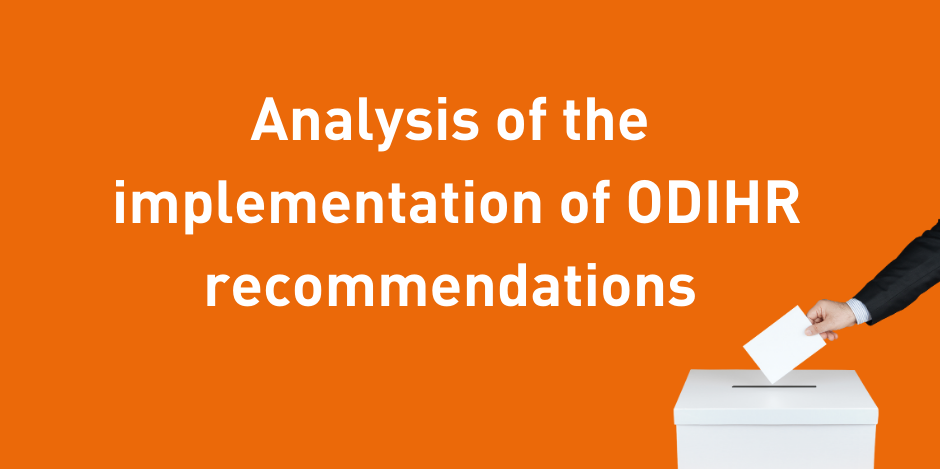No progress in implementation of the OSCE/ODIHR recommendations

In light of the public disclosure of information regarding the implementation of OSCE/ODIHR recommendations for the improvement of the electoral process, the CRTA’s analysis, conducted on the basis of publicly available information, indicates that progress has been achieved only in administrative aspects, while recommendations related to key issues in the electoral process, such as the pressure on voters, abuse of public resources and functions, and media reporting, remain unfulfilled.
As a reminder, the activities of the state and the Working Group for cooperation with OSCE/ODIHR remain non-transparent, and the public is not informed about the results of their work after the 2022 elections. In addition, the final assessment of the implementation of its recommendations can only be provided by ODIHR after the employment of its mission.
In the ODIHR Election Observation Mission report on the April 2022 elections, 26 recommendations for the improvement of the electoral process in Serbia were listed, with nine designated as priority recommendations.
Out of the 15 recommendations whose assessment is currently possible, none has been fully implemented – as indicated by the CRTA’s analysis. Out of the nine priority recommendations, only one is partially fulfilled, five remain unfulfilled, while for the remaining three recommendations the assessment is currently not possible.
The partially fulfilled priority recommendation relates to the introduction of the standardized training for all members of local electoral commissions and polling boards, and is under the authority of the Republic Electoral Commission. Although the REC has taken necessary steps in this regard, training has not yet become mandatory for members of local electoral commissions.
The issue of pressure on voters, that has been included in ODIHR recommendations since 2014, remains unresolved, as authorities have not established any legislative and institutional oversight mechanism that would prevent intimidation and pressure on voters, especially concerning employees in public companies and state offices.
The question of the proactivity of authorized state bodies regarding the abuse of public resources and office also remains unresolved, as well as the recommendation regarding the financing of political activities, since limitations of the electoral campaign costs have not been considered, and there is no explicit regulation of campaigns conducted by third parties.
Regarding priority recommendations concerning the status and reporting of the media, no substantial progress has been made. Although the Draft Law on Electronic Media proposed the exclusion of political bodies from the process of nomination of members for the REM Council, failure to ensure the functional independence of the REM remained. The mentioned Draft Law regulates media reporting on the activities of officials during election campaigns with a provision that is identical to the one that proved inefficient during the 2022 elections, which involves a ten-days ban on media coverage of events featuring officials who run as election candidates.
The revision of the Voter Register recommended by the ODIHR Mission in 2020 and 2022 has not been carried out to this day.
The state’s practice of responding only to recommendations that do not contribute to the fundamental resolution of electoral problems remains, just like in earlier attempts to improve electoral conditions.








